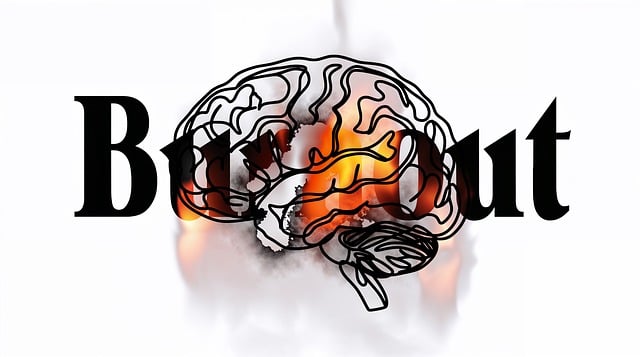Westminster Drug Abuse-Substance Abuse Therapy focuses on teaching essential coping skills for managing stress, emotions, and triggers through Mind Over Matter principles. Their sessions equip clients with healthy alternatives to cope with intense emotions and cravings, promoting mental wellness. The Mental Wellness Podcast Series shares valuable insights and strategies for self-care and emotional resilience, empowering individuals to maintain sobriety. Integrating evidence-based techniques like Mindfulness Meditation and crisis intervention into treatment plans enhances recovery outcomes. Consistent practice of these coping skills is crucial for long-term success in managing substance abuse or addiction, fostering emotional resilience, and improving overall well-being.
Coping skills development is a pivotal aspect of substance abuse therapy, offering individuals effective strategies to navigate challenging situations without resorting to addictive behaviors. This article explores the significance of coping mechanisms in treating drug abuse at Westminster Drug Abuse facilities. We delve into understanding the core principles, identifying personal coping styles, and employing evidence-based techniques. By integrating these skills into treatment plans, patients gain tools for long-term success and relapse prevention, fostering a lasting path to recovery.
- Understanding Coping Skills and Their Significance in Substance Abuse Therapy
- Identifying Personal Coping Strategies: A Journey to Self-Awareness
- Evidence-Based Techniques for Effective Coping Skills Development
- Integrating Coping Mechanisms into Westminster Drug Abuse Treatment Plans
- Long-Term Success and Relapse Prevention through Sustained Coping Skills Practice
Understanding Coping Skills and Their Significance in Substance Abuse Therapy

Coping skills are essential tools for managing stress, emotions, and triggers that play a pivotal role in substance abuse therapy. At Westminster Drug Abuse, we recognize that understanding and developing effective coping strategies is crucial for long-term recovery. The journey towards overcoming addiction involves navigating through intense emotions and cravings, and these skills provide individuals with healthy alternatives to cope with difficult situations without resorting to substances.
Incorporating Mind Over Matter principles, our therapy sessions equip clients with a range of techniques to combat depression prevention and promote mental wellness. Through the production of our Mental Wellness Podcast Series, we share valuable insights and strategies that encourage self-care and emotional resilience. By teaching individuals to recognize and manage their triggers, we empower them to make better choices and maintain their sobriety in various environments.
Identifying Personal Coping Strategies: A Journey to Self-Awareness

Identifying Personal Coping Strategies is a pivotal step in one’s journey towards self-awareness and mental well-being. It involves recognizing the unique ways an individual navigates life’s challenges, whether it’s through creative outlets like art or music, engaging in physical activities, or practicing mindfulness. This process is essential for individuals seeking Westminster Drug Abuse-Substance Abuse Therapy, as understanding one’s coping mechanisms can enhance the therapeutic experience and promote more effective recovery strategies.
By exploring Self-Care Practices, individuals can uncover their personal resources for managing stress and adversity. For instance, some people find solace in social connections and empathy-building strategies, fostering a sense of belonging and support. Others might turn to nature or spiritual practices as a form of grounding and perspective. Developing an arsenal of these coping skills empowers individuals to take charge of their mental health, especially when navigating the complexities of risk management planning for mental health professionals.
Evidence-Based Techniques for Effective Coping Skills Development

In the pursuit of effective coping skills development, individuals can benefit from evidence-based techniques that have proven successful in promoting mental wellness. One such approach is Mindfulness Meditation, which encourages focus on the present moment, thereby reducing stress and anxiety. This ancient practice has been integrated into various therapeutic models, including Westminster Drug Abuse-Substance Abuse Therapy, to help clients manage cravings and triggers more effectively.
Additionally, applying Mind Over Matter principles can empower individuals to reframe their thoughts and perceptions, fostering a sense of control over challenging situations. The Mental Wellness Podcast Series Production offers engaging and accessible resources that delve into these concepts, providing practical tips and strategies for coping with life’s challenges. These multimedia tools not only enhance understanding but also offer a dynamic platform for continued learning and support in the journey towards developing robust coping mechanisms.
Integrating Coping Mechanisms into Westminster Drug Abuse Treatment Plans

Integrating coping mechanisms into Westminster Drug Abuse Treatment Plans is a strategic approach to enhancing patient recovery and well-being. Effective substance abuse therapy goes beyond addressing the physical aspects of addiction; it recognizes the profound impact of mental health on an individual’s journey towards sobriety. By incorporating techniques like crisis intervention guidance, self-care routine development for better mental health, and emotional regulation strategies, therapists can provide a holistic support system tailored to each patient’s unique needs.
These coping skills are not merely additional tools but essential components that empower individuals to navigate the challenges of drug abuse recovery. Through structured programs, patients learn to identify triggers, manage cravings, and cope with stressful situations in healthier ways. The integration of these strategies ensures a more comprehensive and sustainable approach to substance abuse therapy, fostering emotional resilience and improving overall treatment outcomes in Westminster Drug Abuse Treatment Plans.
Long-Term Success and Relapse Prevention through Sustained Coping Skills Practice

Engaging in consistent practice of coping skills is pivotal for long-term success and relapse prevention, especially when it comes to managing substance abuse or addiction. It’s akin to honing a muscle; regular use strengthens its ability to withstand challenges. At Westminster Drug Abuse, our Substance Abuse Therapy programs emphasize this continuous learning process, equipping individuals with an arsenal of techniques to navigate stressful situations without resorting to harmful behaviors.
By integrating proven Stress Reduction Methods and Burnout Prevention strategies into their daily lives, individuals cultivate resilience. This proactive approach empowers them to effectively manage their Moods, enabling a deeper sense of control and confidence in their ability to cope with triggers and cravings. Ultimately, sustained practice transforms these skills from theoretical knowledge into intuitive responses, paving the way for lasting recovery and improved overall well-being.
Coping skills development is a cornerstone of successful Westminster Drug Abuse treatment, addressing the root causes of substance abuse and enabling individuals to navigate life’s challenges without resorting to drugs or alcohol. By integrating evidence-based techniques into treatment plans, we can foster long-term success and relapse prevention. Self-awareness, understanding personal coping strategies, and sustained practice are key to harnessing resilience and achieving lasting recovery in the context of Westminster Drug Abuse therapy.














